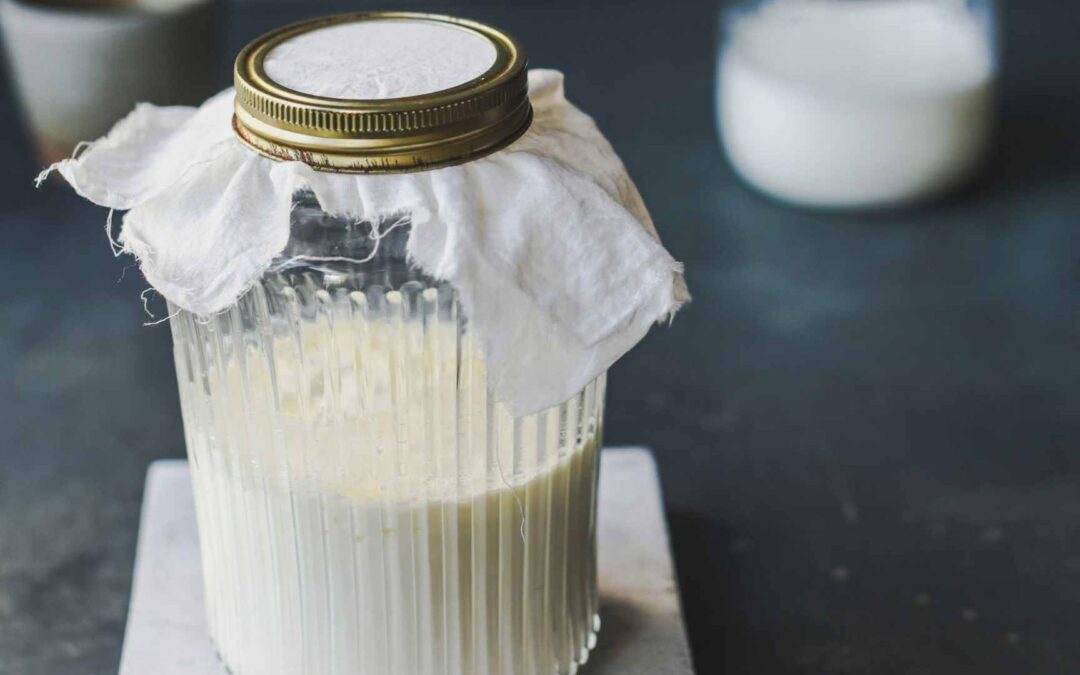In today’s fast-paced world, self-care is no longer a luxury—it’s a necessity. Taking care of your body and mind involves nourishing yourself from the inside out, and one of the simplest yet most effective ways to do so is by incorporating homemade kefir into your routine. This probiotic-rich drink is more than just a trend; it’s a powerhouse of health benefits that support your overall well-being.
What is Kefir?
Kefir is a fermented drink made by combining milk with kefir grains, a symbiotic culture of bacteria and yeast. These grains transform milk into a tangy, slightly fizzy beverage teeming with live probiotics and essential nutrients. While kefir is widely available in stores, making it at home ensures the highest quality, freshness, and customization to suit your taste and health needs.
The Health Benefits of Homemade Kefir
- A Probiotic Powerhouse for Gut Health
Homemade kefir is rich in beneficial bacteria and yeast that help maintain a healthy gut microbiome. A balanced gut flora improves digestion, reduces bloating, and supports regular bowel movements. It’s particularly helpful after a course of antibiotics, as it can restore the natural balance of bacteria in the digestive system.
- Boosts Immunity
Your gut plays a central role in your immune system, and kefir’s probiotics strengthen this connection. By improving gut health, kefir enhances your body’s ability to fight infections and inflammation. It also contains bioactive compounds like lactoferrin, which have antimicrobial properties.
- Supports Bone Health
Homemade kefir is a fantastic source of calcium, magnesium, and vitamin K2. These nutrients are essential for maintaining strong bones and preventing conditions like osteoporosis. The fermentation process also makes kefir easier to digest, ensuring your body absorbs these critical nutrients effectively.
- Improves Digestion
For those who struggle with lactose intolerance, kefir can be a game-changer. The fermentation process breaks down lactose into simpler sugars, making it easier to digest. Kefir also soothes the digestive tract and can alleviate symptoms of irritable bowel syndrome (IBS). I have noticed improvements in my IBS since taking kefir daily.
- Enhances Mental Well-Being
The gut-brain connection is well-documented, and kefir’s probiotics can positively influence mental health. Regular consumption has been linked to reduced symptoms of anxiety and depression, thanks to its ability to reduce inflammation and promote the production of feel-good neurotransmitters.
- Promotes Healthy Skin
Healthy skin starts with a healthy gut. By improving digestion and reducing systemic inflammation, kefir can help with skin conditions like acne, eczema, and psoriasis. Its probiotics also promote a natural glow by enhancing nutrient absorption.
- Customisable and Cost-Effective
Making kefir at home allows you to control its flavour, texture, and probiotic content. It’s also an affordable alternative to store-bought versions, which often contain added sugars and fewer live cultures. With just a small investment in kefir grains, you can enjoy endless batches of fresh, organic kefir.
Why Homemade Kefir is a Self-Care Ritual
Self-care is about more than just face masks and bubble baths; it’s about making intentional choices to support your well-being. Here’s why incorporating homemade kefir into your self-care routine is a meaningful act of self-love:
- Empowerment: Preparing your own kefir connects you to the process of nourishing your body, fostering a sense of accomplishment and mindfulness.
- Consistency: A daily glass of kefir is a simple ritual that offers long-term benefits, helping you feel more energised, balanced, and resilient.
- Connection: Sharing your homemade kefir with family and friends is a beautiful way to spread health and happiness.
How to Get Started
Making homemade kefir is surprisingly easy. All you need are kefir grains, milk (organic cow, goat, or plant-based options like coconut milk), and a bit of patience. Combine the grains with milk, let it ferment at room temperature for 12-24 hours, strain out the grains, and your kefir is ready to enjoy. If you are making kefir with non-dairy milks you need to add some form of sugar for the kefir to live on in order for it to ferment. I will share another article on this and also a video as I have tested a few different non-dairy milks out.
You can enjoy the kefir plain like I do, or experiment with adding fruits, spices, such as cinnamon or vanilla for a personalised touch.
If you are interested in trying this yourself, please let me know if you would like me to supply you some organic kefir grains – soon I should have enough for you all!
Conclusion
Homemade kefir is more than just a beverage; it’s a gift to your body and a cornerstone of self-care. Its health benefits are vast, from improving gut health and immunity to enhancing mental clarity and skin radiance. By making kefir at home, you’re not only embracing a healthier lifestyle but also engaging in a nurturing ritual that reminds you to prioritise your well-being every day. So why not start today? Your body—and your future self—will thank you.










